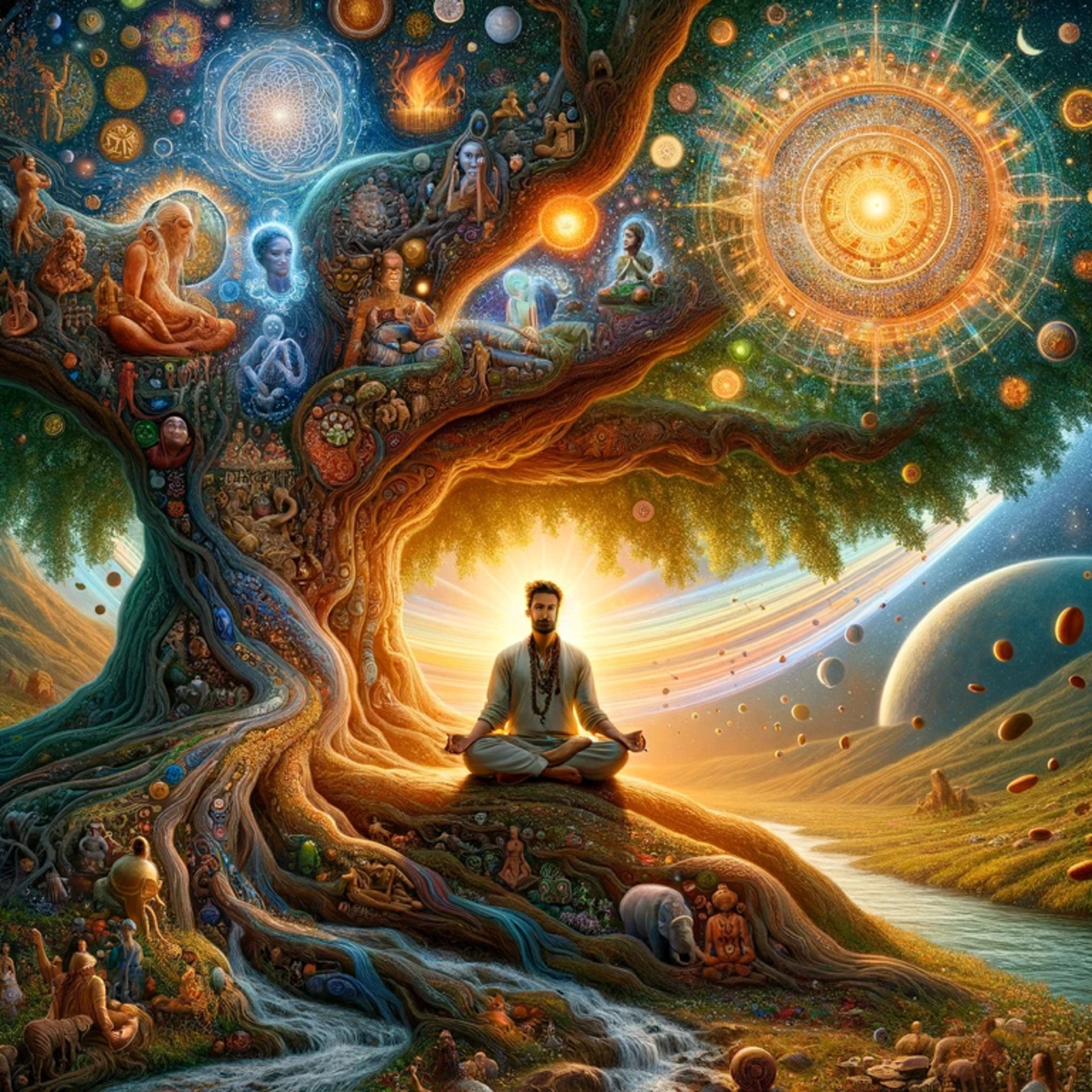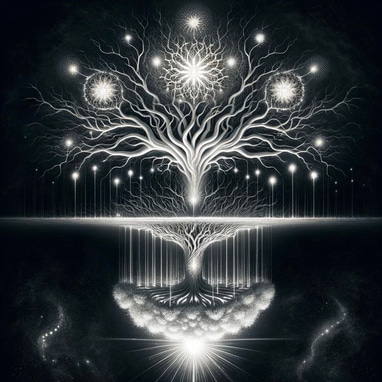
Detached Witness, Engaged Scholar: Bridging Anthropology and Hindu Philosophy for a Life of Meaning
This article explores how the "in-between" approach of anthropology and the detachment teachings of Hinduism can be combined to create a powerful mindset for navigating life. It argues that both traditions encourage objectivity, understanding, and transcending limiting identities, ultimately leading to a deeper truth about ourselves and the world around us. This integrated approach, while rooted in specific disciplines, offers valuable tools for anyone seeking a more meaningful and fulfilling life.
EASTERN PHILOSOPHY SOCIAL MEDICINE
2/11/20242 min read
Abstract: This article explores the convergence between the anthropological "in-between" and the Hindu concept of detachment, arguing that both offer valuable perspectives for navigating the complexities of identity and truth in life. Examining anthropological practices through the lens of Hindu philosophical frameworks like Advaita Vedanta and Karma Yoga, the article proposes a unique approach to understanding the world and oneself. Finally, it highlights the transformative potential of adopting this mindset, extending its relevance beyond academic pursuits to enrich the lives of every human being.
Introduction:
Paul Stoller's "The Power of the Between" challenges anthropologists to embrace liminality, existing "between" cultures and realities. This resonates with Hindu concepts of dissolving ego and detaching from worldly identities. Both traditions share a pursuit of truth, albeit through different lenses. Can these seemingly disparate approaches be integrated to offer a richer understanding of human experience?
Anthropology: Dwelling in the In-Between:
Stoller posits the "in-between" as a transformative space, fostering cultural sensitivity and challenging ethnocentrism. Anthropologists suspend judgment, seeking to understand "others" on their own terms. This aligns with the Advaita Vedanta ideal of transcending illusory individual identities to recognize the underlying unity of all beings. Both emphasize objectivity and a willingness to step outside oneself.
Hindu Philosophy: Cultivating Detachment:
Karma Yoga, another Hindu philosophy, advocates selfless action without attachment to outcomes. This action becomes a form of worship, mirroring the anthropologist's dedication to their research. Both approaches require letting go of personal desires and agendas, prioritizing understanding over personal gain.
Beyond Academia: A Universal Mindset:
This "in-between" and detached perspective holds tremendous value beyond academic pursuits. In our daily lives, clinging to rigid identities creates conflict and suffering. By adopting an observer's stance, we can examine our thoughts and emotions without judgment, recognizing them as transient phenomena. This aligns with the Buddhist concept of "mindfulness," allowing us to respond to situations with greater wisdom and compassion.
Conclusion:
Integrating the anthropological "in-between" with the Hindu philosophy of detachment offers a potent framework for navigating the complexities of life. By cultivating a mindset of observation, suspending judgment, and recognizing our interconnectedness, we can move beyond limiting identities and discover a deeper truth about ourselves and the world. This approach, though rooted in specific academic and philosophical traditions, offers powerful tools for enriching the lives of all human beings.
Further Reading:
Stoller, P. (2008). The power of the between: An anthropological odyssey. University of Chicago Press.
Radhakrishnan, S. (1929). Indian philosophy (Vol. 2). Oxford University Press.
Swami Vivekananda (1995). Karma yoga. Vedanta Society of New York.


My post content


